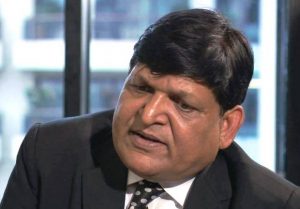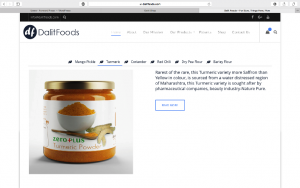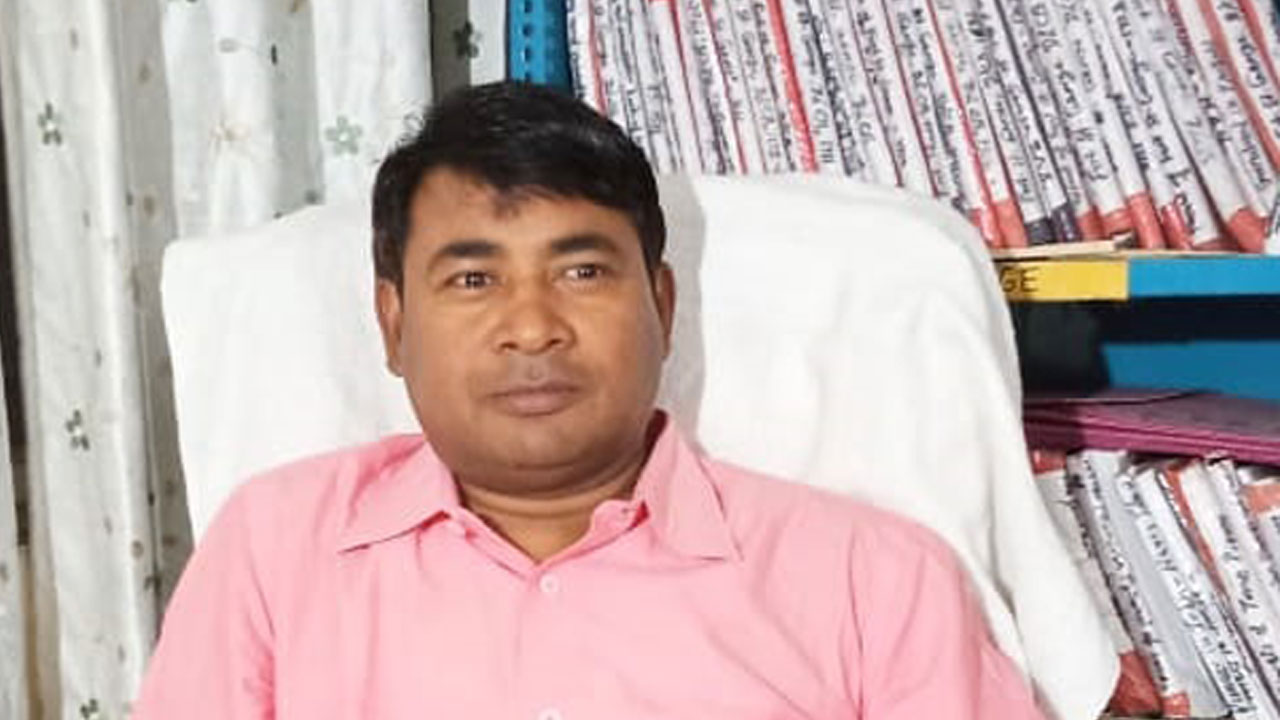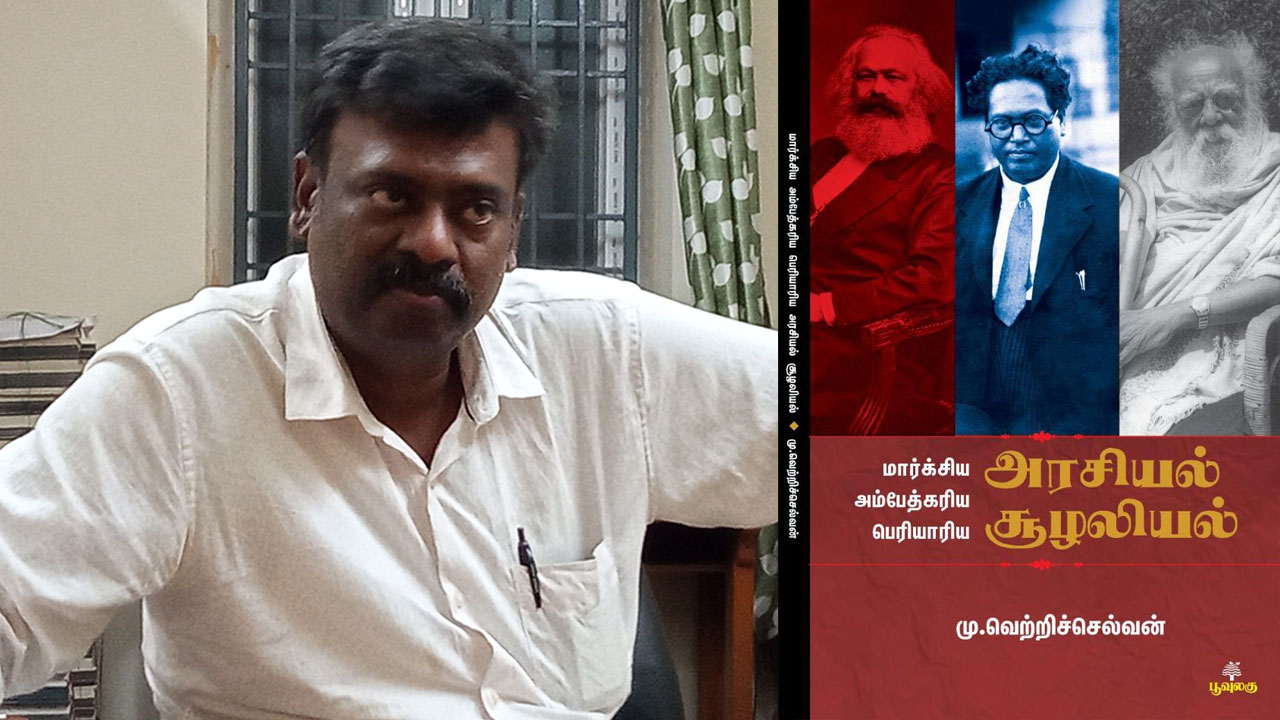“Dalit Foods” and “Dalit Shop” – the nomenclature is somewhat confusing. Is the food meant for Dalits or made by Dalits or both? Who runs the shop and who are its potential customers? But since these are commercial brand names, they surely have something to do with with the market and market forces.

Dalit Foods and Dalit Shop are commercial initiatives launched by Chandrabhan Prasad in July 2016. As Chandrabhan Prasad is associated with the Dalit Indian Chamber of Commerce and Industry (DICCI), some news stories wrongly described it as a DICCI venture. N.K. Chandan, president of Delhi Chapter of DICCI, clarified, saying, “This is not an initiative of DICCI but of Chandrabhan Prasad.” But, he said, the venture was in keeping with the objectives of DICCI, ie to promote Dalits in the fields of industries and commerce.
Born in Uttar Pradesh, Chandrabhan Prasad was educated in JNU, New Delhi and abroad. Under the influence of leftists, he had a brief flirtation with Naxalism as well. But he says, “I had lost my way.” Today, he is a staunch supporter of capitalism and market economy. He explains why: “Market and Adam Smith [British economist, 1723-1790] are the biggest enemies of Indian Manu, Manusmriti and Manuvad.” Chandrabhan describes himself as an Ambedkarite but many say a protagonist of market economy and capitalism cannot be an Ambedkarite.
When, in 2005, Milind Kamble founded DICCI, many Ambedkarite and leftist thinkers had declared the move as contrary to the interests of Dalit community and Ambedkar’s philosophy and thoughts. They also alleged that DICCI was distorting Ambedkar. The critics said Ambedkar never supported capitalism. As far as I can understand, Ambedkar was a supporter of state socialism in which private capital and capitalism would have a place. This is called “social capitalism”. I am also a supporter of “social capitalism”.
Dalitfoods.com and Dalitshop.com are e-commerce ventures. According to him, Dalitfoods.com will vend food products manufactured by Dalit entrepreneurs only. Of course, anyone will be free to buy them. He says, “We have launched another e-commerce portal Dalitshop.com through which non-Dalit entrepreneurs can also sell their products. We want to take everyone along and it is heartening to note that members of other communities are also associating with it.”
 On being asked what made him choose the name “Dalit Foods”, he said, “When there can Dalit literature, why not Dalit Foods?” This argument does not sound convincing, as Dalit literature is about a social intellectual discourse while Dalit Foods is a product. Few are aware of the logic behind the naming of the product. Chandrabhan said that the idea struck him when, as part of a research project he was doing for an American university, he stayed in a Dalit village. He said that he found that the Dalits who were eating very simple food were living for 80-90 years. He then felt that unadulterated natural food was the secret of their good health and longevity. This food is now called organic, natural and healthy food. It was here that the inspiration for the product and the brand name came. He decided to go for a synergy of Dalit entrepreneurship and their traditional knowledge of unadulterated natural food. To encourage the consumption of this food, he came up with the name Dalit Foods.
On being asked what made him choose the name “Dalit Foods”, he said, “When there can Dalit literature, why not Dalit Foods?” This argument does not sound convincing, as Dalit literature is about a social intellectual discourse while Dalit Foods is a product. Few are aware of the logic behind the naming of the product. Chandrabhan said that the idea struck him when, as part of a research project he was doing for an American university, he stayed in a Dalit village. He said that he found that the Dalits who were eating very simple food were living for 80-90 years. He then felt that unadulterated natural food was the secret of their good health and longevity. This food is now called organic, natural and healthy food. It was here that the inspiration for the product and the brand name came. He decided to go for a synergy of Dalit entrepreneurship and their traditional knowledge of unadulterated natural food. To encourage the consumption of this food, he came up with the name Dalit Foods.
Dalits do not have access to the kitchens of conservative savarnas and even of the OBCs. Then, how can we expect food items produced by Dalits and named “Dalit” to reach the kitchens of these communities?
Chandan says, “The name Dalit Foods would click because Dalits do not have access to the kitchens of non-Dalits.” According to him, just as Dalits made their way into politics, they would make their way into the kitchens too. Dalit Foods, he says, is an “intervention”. The mission of Dalit Foods is to create a big market for “unadulterated, fashionable Dalit foods” so that the entrepreneurs can earn profits. This will be made possible with the aid of the “English [language] and entrepreneurship”. The website of Dalit Foods says that it will “force the customers to buy their products”, which are pure and natural.
Will Dalit Foods and Dalit Shop help in loosening the stranglehold of the casteist mindset on Indian society? I feel these brands will deal a blow to the casteist arrogance and economic monopoly by sending out the message that Dalits are no longer only jobseekers, but they are job-givers, too. And this will become possible only through the capitalist model.
Parallels are being drawn between this venture and that of Ramkishan Yadav, alias Baba Ramdev. I think it is unfair. Baba Ramdev’s products are a mix of religiosity and miracle worker’s promises whereas Dalit Foods sends out the message of socio-economic progress and change. Chandrabhan rightly says, “Baba Ramdev has managed to build such an image of himself that even if he starts making cow-dung ice-cream, it will sell.”
Eating natural and healthy foods is one of the secrets to a long and healthy life. But does only the Dalit community have knowledge about such foods? Don’t the Tribal and gypsy communities and the OBCs, who have been mainly farmers and animal rearers, have this knowledge? And, for that matter, on what basis can one claim that Brahmins and other savarna castes do not possess this traditional knowledge?
 Prasad also says that he will “force” people to buy his products. Swearing by the market economy and talking of “forcing” is mutually contradictory. “Consumer is king” is the adage of Adam Smith and market economy that Prasad repeatedly refers to. In India, shops proclaiming “Customer is our god” are fairly common. Even someone uninitiated into the finer points of economic theory knows that forcing someone to buy something is possible only in a monopoly, which can exist only in theory. Therefore, I disagree with him on two points: 1) Only the Dalit community has the traditional knowledge of natural and healthy foods and only Dalits consume such foods and 2) Any entrepreneur can force others to buy his products.
Prasad also says that he will “force” people to buy his products. Swearing by the market economy and talking of “forcing” is mutually contradictory. “Consumer is king” is the adage of Adam Smith and market economy that Prasad repeatedly refers to. In India, shops proclaiming “Customer is our god” are fairly common. Even someone uninitiated into the finer points of economic theory knows that forcing someone to buy something is possible only in a monopoly, which can exist only in theory. Therefore, I disagree with him on two points: 1) Only the Dalit community has the traditional knowledge of natural and healthy foods and only Dalits consume such foods and 2) Any entrepreneur can force others to buy his products.
Would his customer base not have been wider had he picked a name other than Dalit Foods? “Are you a Dalit or Brahmin?”, he responded with a question. “I am from the backward class”. “Only backwards can ask such questions”, he said and hung up. This kind of strange behaviour is also reflected in his writings and other intellectual activities. It demands an analysis.
Be that as it may, there is no denying the fact that the name Dalit Foods does carry a sociopolitical and cultural message. The message is that Dalits are no longer a community of manual labourers and jobseekers but also of job providers and entrepreneurs. The name will definitely inspire Dalits to turn entrepreneurs and carve out a place for themselves in the world of business. To live up to its name will be Dalit Foods’ biggest challenge.





